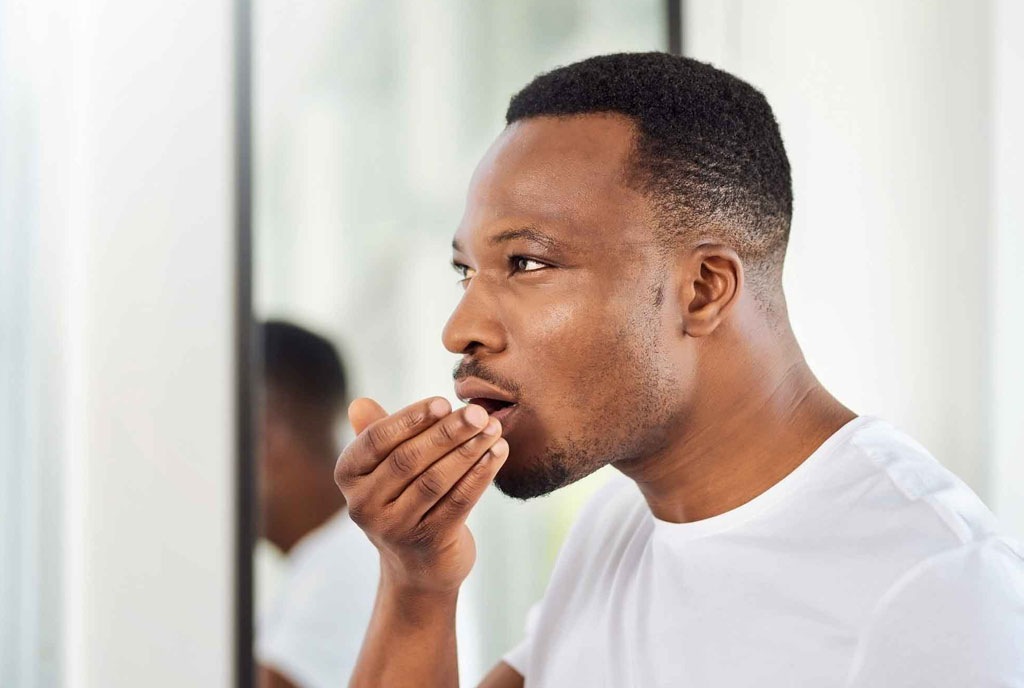Prime
Ask the doctor: Why do I have bad breath in the morning?

Diagnosis and treatment of an existing health condition may get rid of the bad breath. PHOTO/COURTESY
My breath is so bad in the morning when I wake up but surprisingly, even when I do not brush, the odour goes away on its own. What can I do to stop it? Babalanda
Dear Babalanda,
Bad breath or halitosis is attributed to the smell coming from the mouth, hence the name smelly mouth or mouth odour. Although breath odour originates mostly from the mouth, it can be caused by nasal, throat, lungs, stomach, kidney or liver problems, among others.
Bad breath in the morning can affect anyone since during the night as we sleep, there is almost no saliva flow in the mouth to help wash away the germs that cause odour in the mouth where they break down remains of food to create the odour.
When we wake up, saliva begins to flow normally, hence dislodging the odour-producing germs resulting in less odour. Also, after dealing with an odour for some time, the odour sensing organs may stop sensing it as they switch to sensing other odours in what is called olfactory fatigue.
Apart from inadequate sleep, saliva being produced causing the bad odour, any condition that reduces the production of saliva in the mouth such as hunger, dehydration, drugs that dry the mouth and the so called Sjögren’s syndrome disease, may all lead to a dry mouth, leading to breath odour.
Poor oral hygiene without proper brushing, flossing and dental check-ups as well as untreated diabetes may risk one harmful bacteria invading the teeth and gums resulting in tooth cavities and gum disease with ensuing bad breath.
Stomach acid reflux, (GERD) infections in the throat such as tonsillitis, infections in the nose, or lungs, liver disease, poor sleeping habits, eating certain kinds of food, allergies and smoking before sleeping may all risk one bad breath.
Drinking lots of water including just before sleeping or after waking up, proper brushing, flossing and cleaning the tongue, reducing your sugar intake or syrups for treatments of say coughs and annual dental check-ups can go a long way in minimising bad breath.
Can alcohol help with period pain?
My friends and I take alcohol to ward off period pain, which is a common habit among university students. What are the dangers of doing this? Irene Okot
Dear Irene,
Painful periods are one reason young girls miss school and these are unfortunately usually without found cause. However, it is suspected that the pain may be due to increased contraction of the womb resulting from excessive production of locally produced substances called prostaglandins which are meant to help shed the inner womb membrane, leading to periods.
Alcohol may interfere with contraction of the womb, hence reducing period pain apart from making a woman more courageous to withstand the pain.
However, how much alcohol one takes to stop period pain is unknown. Therefore, if alcohol is taken to stop the pain, it is likely to lead to intoxication and chronic alcoholism. Also, alcohol being a diuretic increases urination, leading to dehydration which can make period pain worse.
During a painful period, a woman is advised to take a lot of fluids to hydrate and mitigate the pain. Alcohol, much as it is a fluid, causes dehydration, the reason it should be avoided during one’s period.
Painful periods require proper investigation and treatment and where possible, if the cause is found, treatment should target the cause.
Early and effective treatment will help reduce the likelihood of complications such as infertility and chronic suffering. Alcohol for painful periods is actually much more expensive in terms of both long-term health effects and finances.



